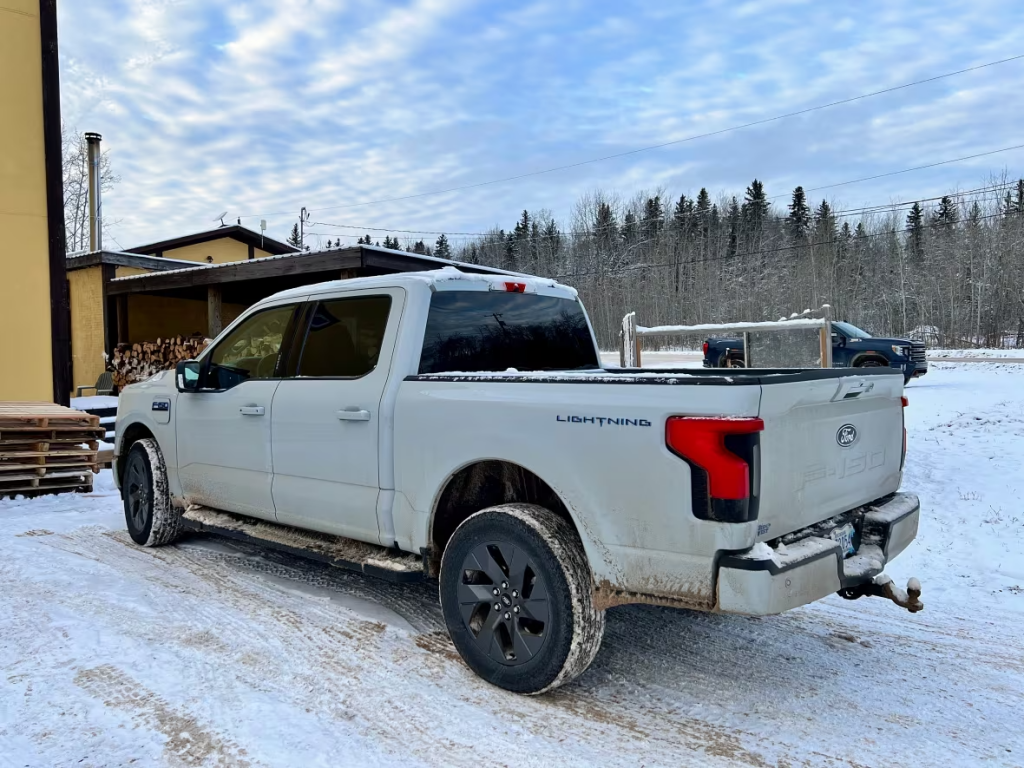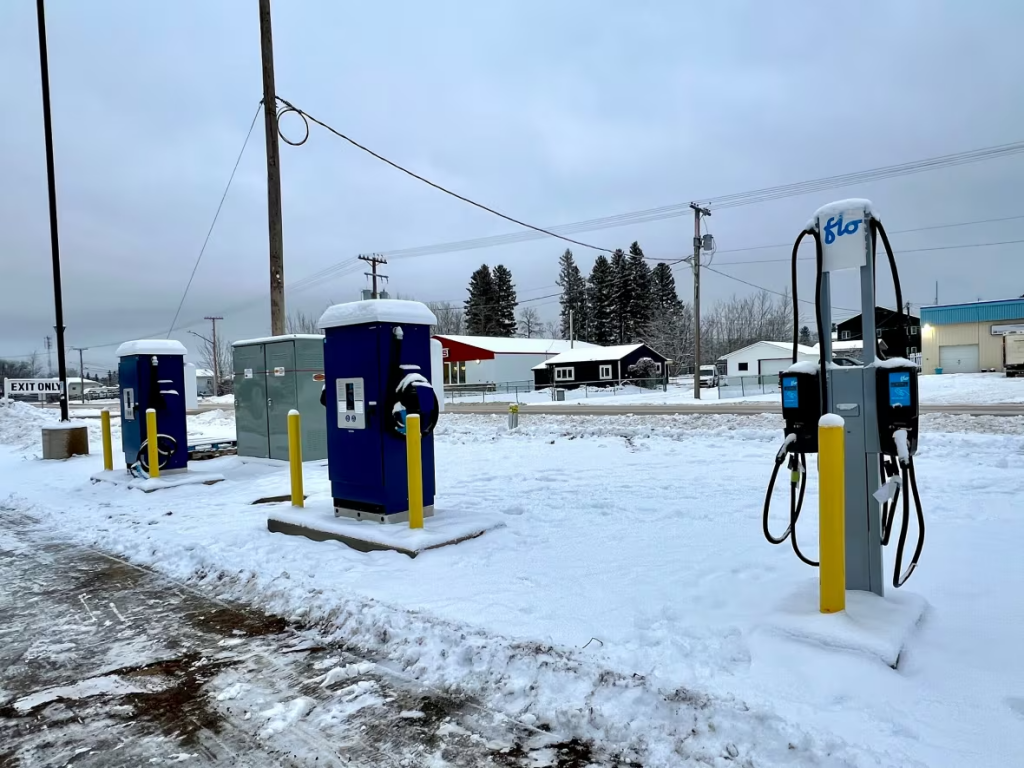Canada News
N.W.T.’s newest charging station boosts confidence for some EV owners on long drives

Dennis Bevington of Fort Smith, N.W.T., with his new electric truck. He and his wife have had a plug-in hybrid for years which he said made him feel comfortable about buying his new EV. (Carla Ulrich/CBC)
By Carla Ulrich, RCI, CBC News
Territory aims to see EV-charging corridor stretch from Yellowknife to the Alberta border
The N.W.T.’s goal of a zero-emission vehicle corridor continues to take shape, including with the recent installation of the first EV charging station in Hay River.
Some area residents, already confident driving their electric vehicles around town, say the new charging station has them feeling more comfortable about driving longer distances.
Dennis Bevington of Fort Smith, N.W.T., has been navigating the Northwest Territories’ rugged roads for decades. He and his wife, Joan, have had a plug-in hybrid for years which he said made him feel comfortable about his latest purchase, a new all-electric truck.
“Our experience for six years with the plug-in hybrid was that we could run it on batteries pretty well the whole winter, it was not a problem,” he said.
Bevington’s says their new Ford F-150 Lightning, which has a range of 500 kilometres in the summer and about 350 kilometres in the winter, handles their typical journeys well. However, when charging stations were sparse in the N.W.T., longer road trips came with their own set of challenges.

Now he feels more confident about taking his truck on longer trips around the North, and down south.
NT Energy, a sister company of the Northwest Territories Power Corporation (NTPC), owns the charging station in Hay River. Doug Prendergast, a spokesperson for NTPC, said NT Energy will also be installing new charging stations in Fort Smith and Behchokǫ̀ by the end of November.
Naka Power already operates two electric vehicle chargers in Yellowknife and will be installing more in Fort Providence and Enterprise next year, according to a news release from the N.W.T. government last week.
The territory says its EV-charging corridor will eventually extend from Yellowknife to the Alberta border.
Bevington said the next charging station after heading south from Hay River would be in High Level, Alta. He uses an app that tracks nearby chargers and their conditions.
“Which is very important as well, to know that if you’re going to go somewhere to charge up, that the charger’s ready to accept you,” he said.

This winter will be the first cold season for the truck. With Ford recently upgrading the vehicle’s battery heater, Bevington is optimistic.
He encourages others to consider making the switch to an electric vehicle.
“It’s a big investment, and I would recommend that people study it carefully before they do it,” he said. “I’d be willing to report to anybody next year about how well this works out.”
Bevington believes that for people who mostly drive in town, an electric vehicle could be a viable choice even in northern conditions.
Bevington purchased the vehicle in July as a work truck. He’s already collected wood with it.
“It has virtually no emissions, it’s a comfortable vehicle to drive,” he said.
“I was a Chev[rolet] owner for most of my life. Now I’m a Ford owner, and I have to deal with that as well,” he laughed.





















